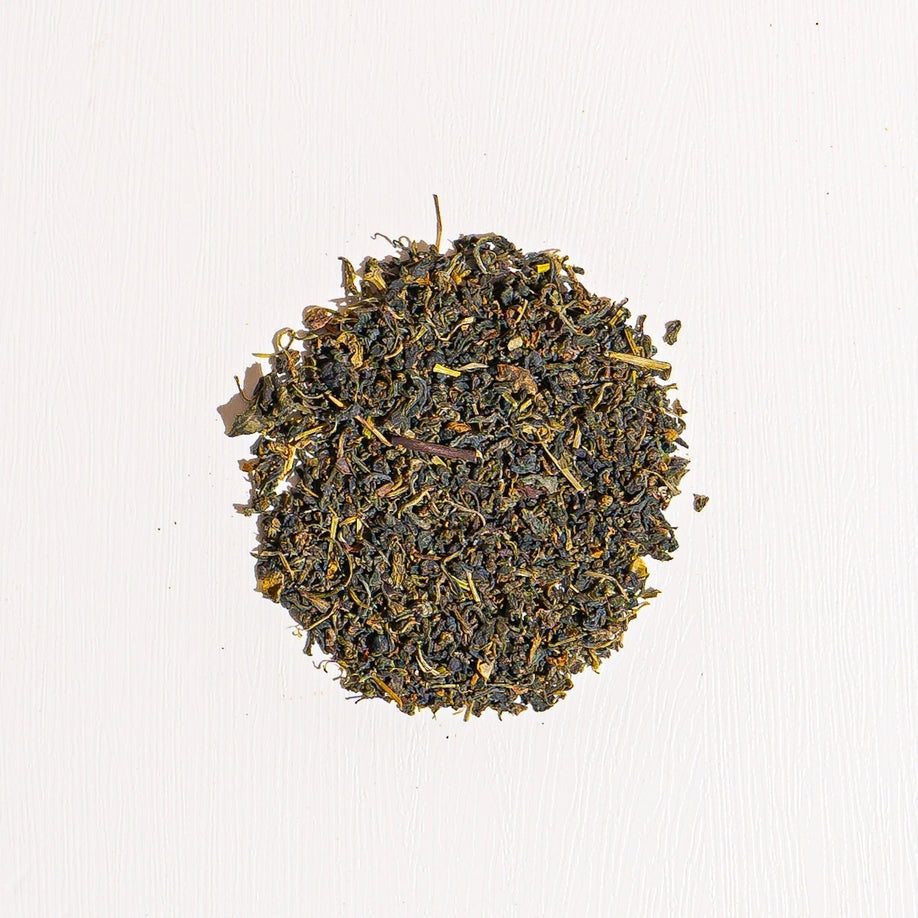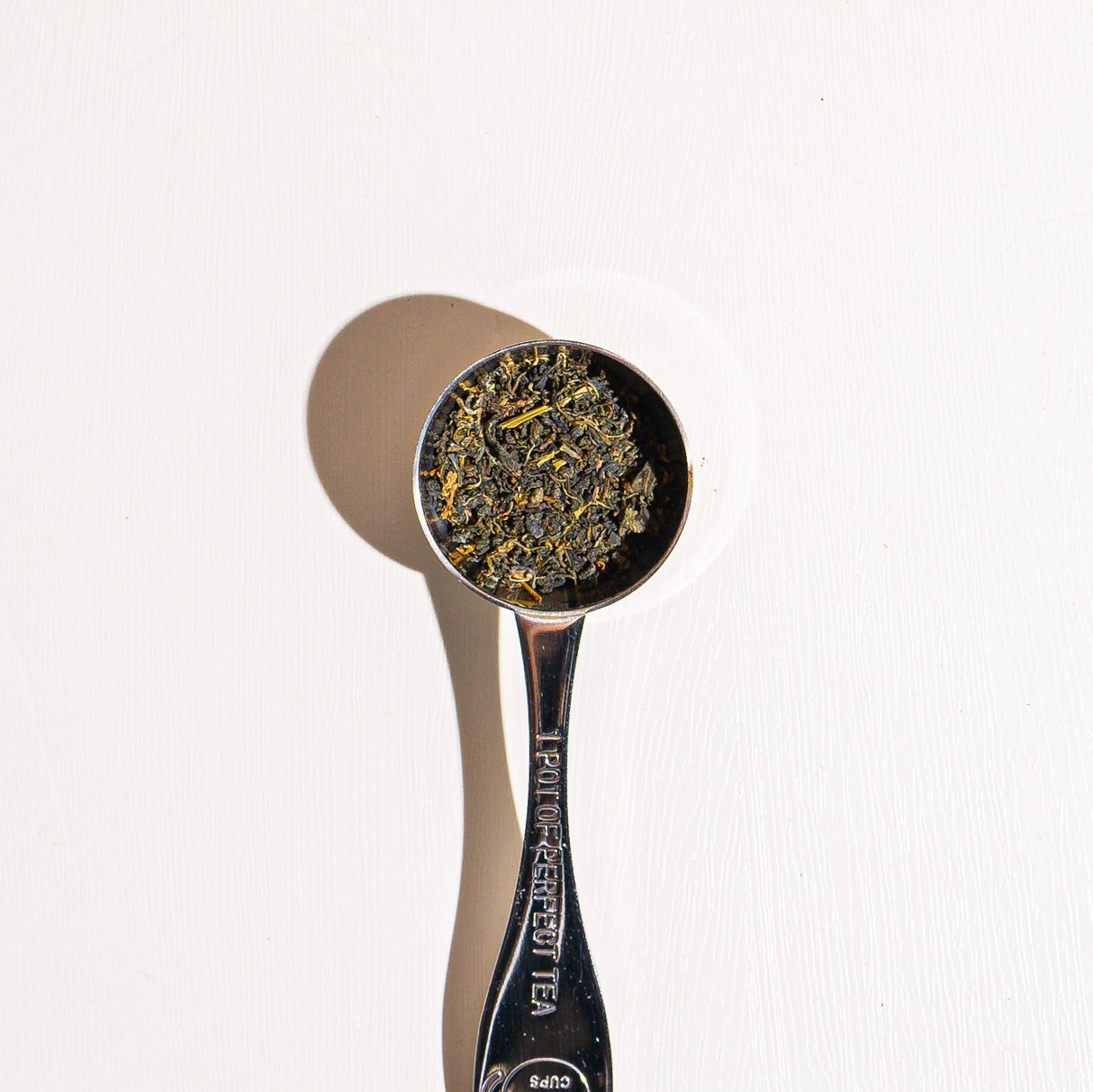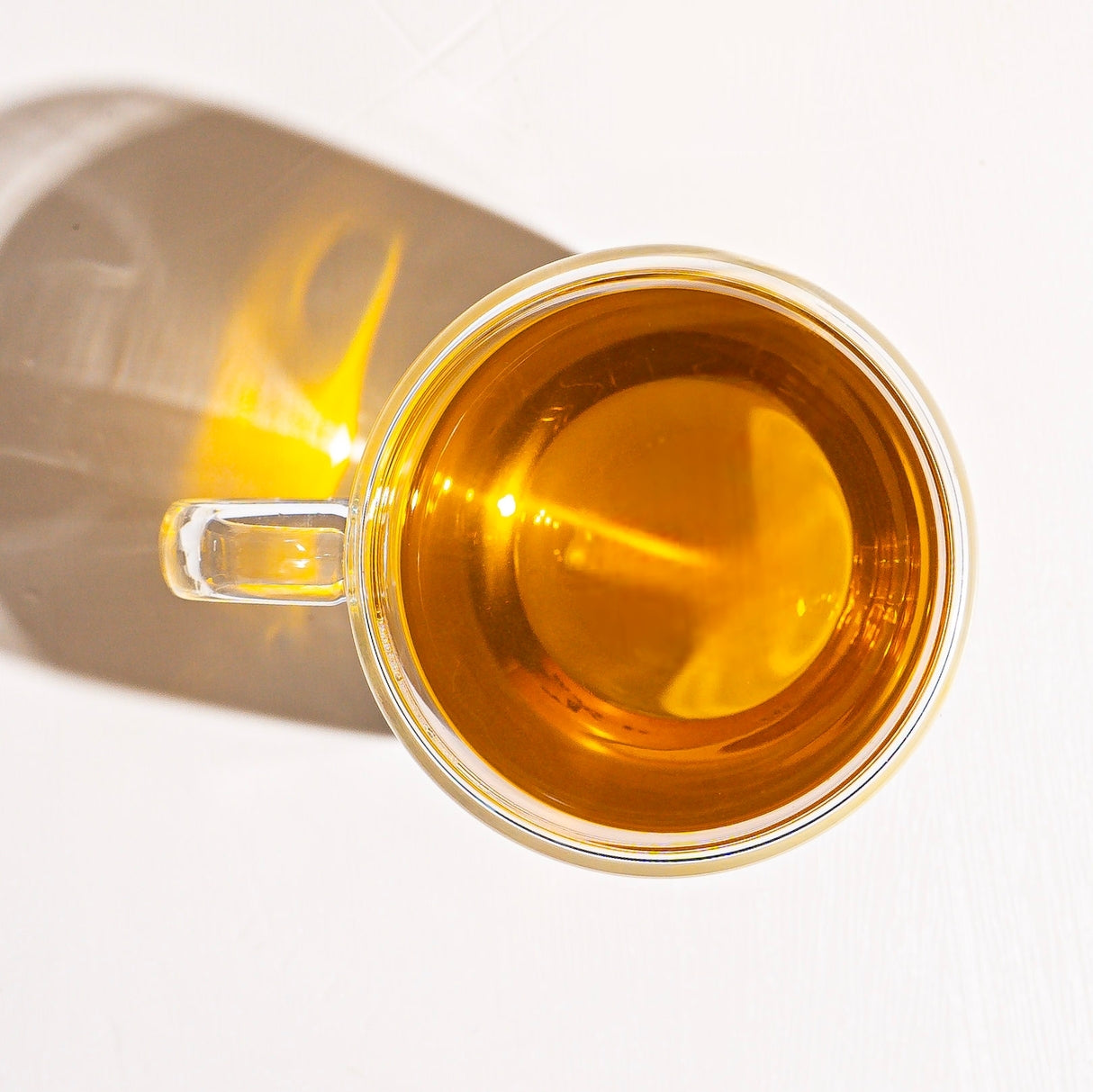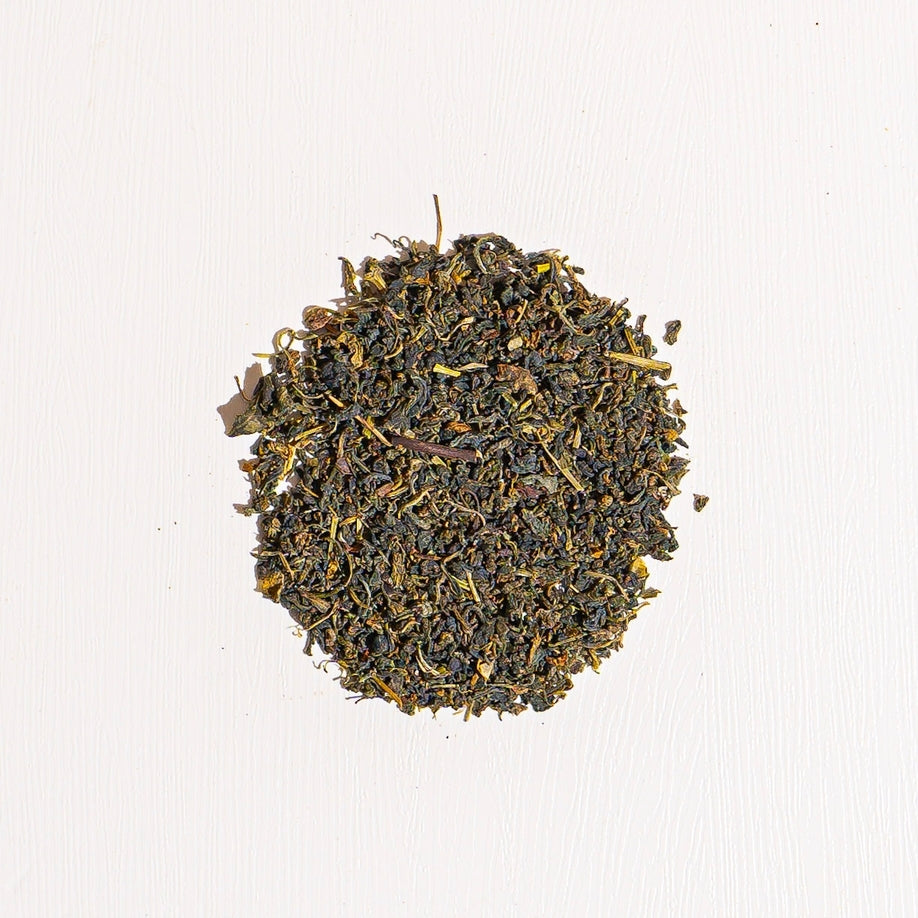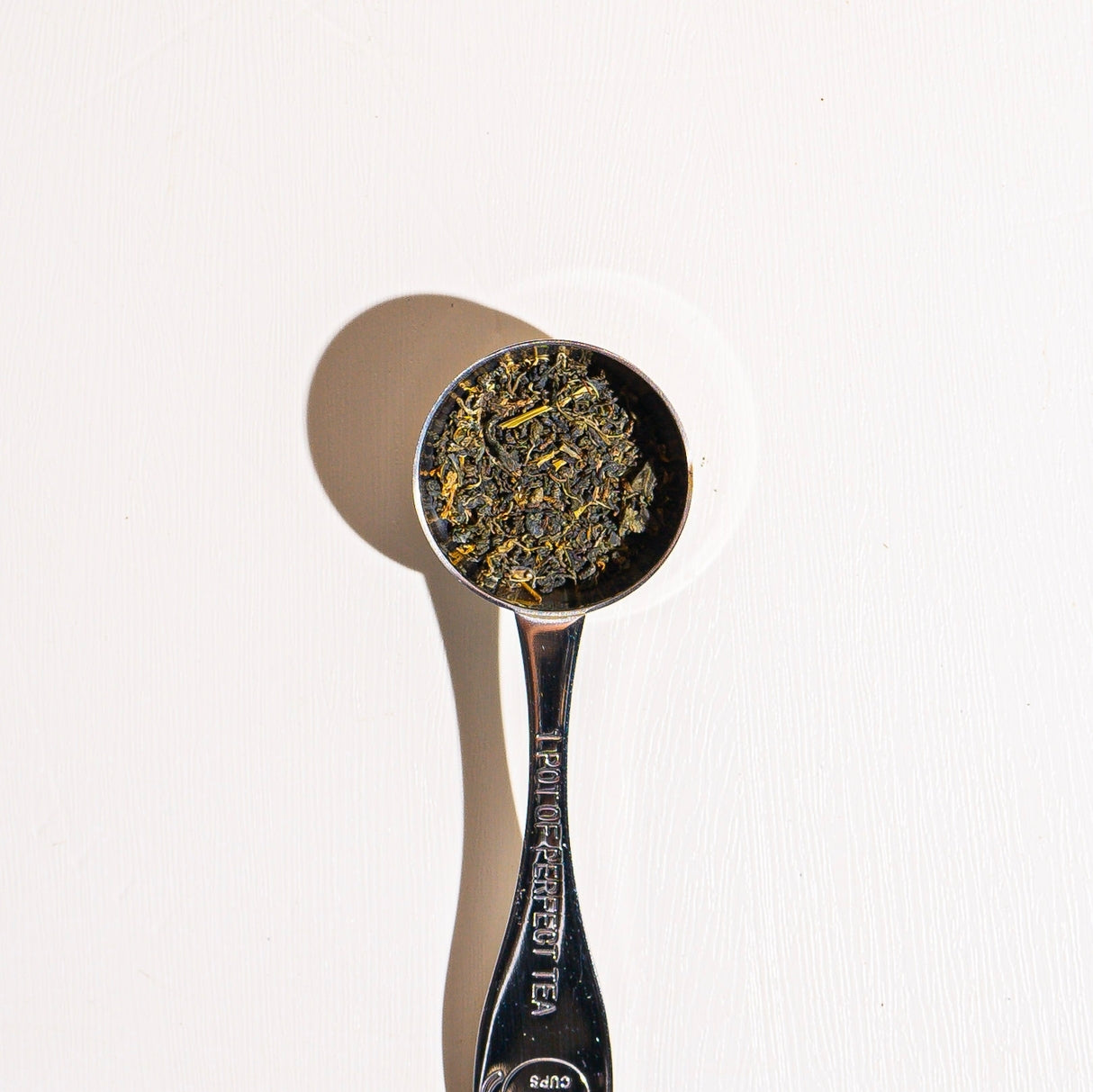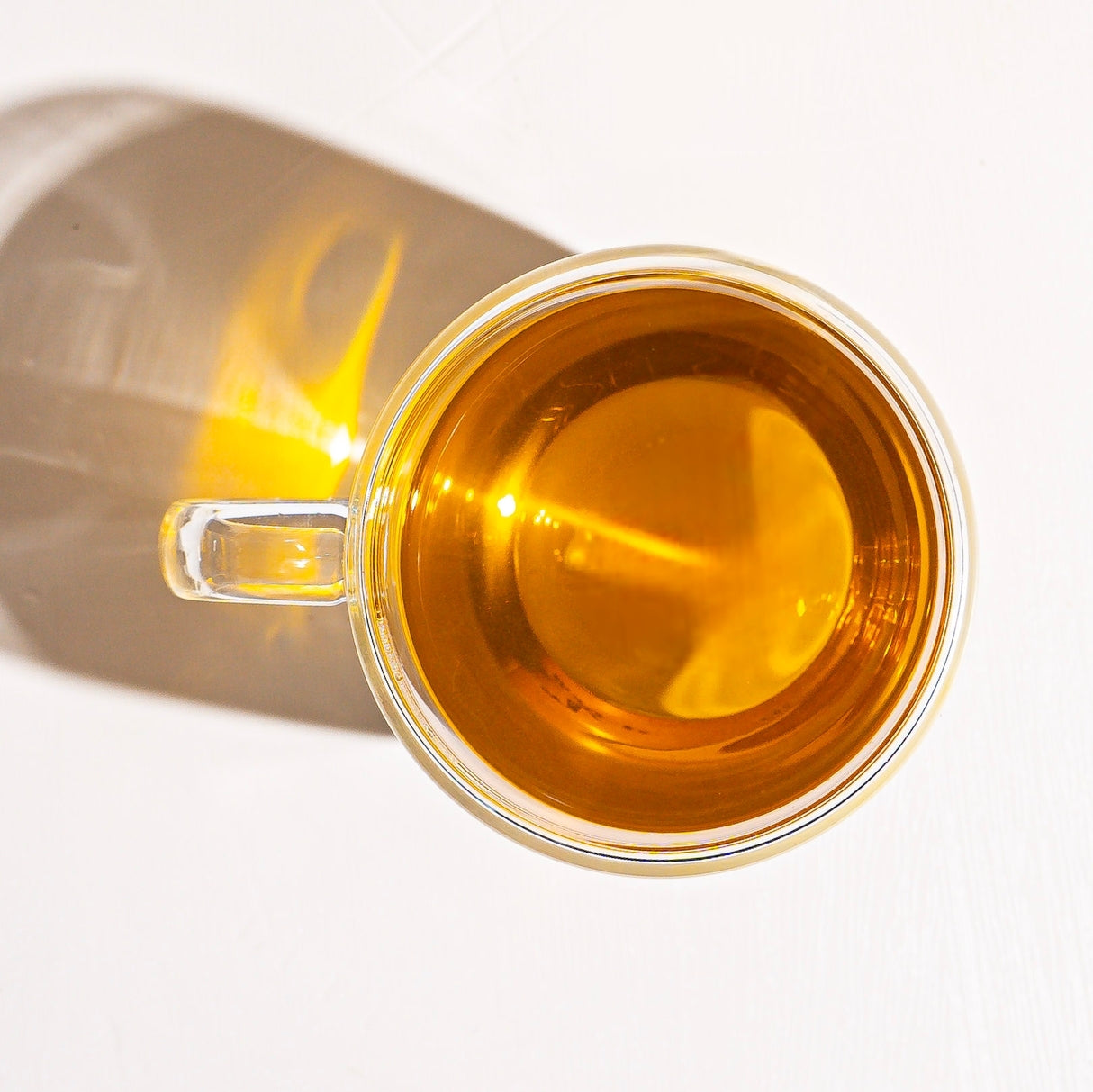1
/
of
3
Gynostemma Leaves
Initially the taste is mildly grassy but soon a natural sweetness fills your mouth with a lightly astringent finish. Widely consumed in Southern China.
Luxury Ingredients: Gynostemma leaves.
region: China
HOT BREWING METHOD:
Bring filtered or freshly drawn cold water to a rolling boil. Place 1 slightly heaping teaspoon of loose tea for each 7-9oz / 200-260ml of fluid volume in the teapot. Pour the boiling water into the teapot. Cover and let steep for 3-7 minutes according to taste (the longer the steeping time the stronger the tea).
Bring filtered or freshly drawn cold water to a rolling boil. Place 1 slightly heaping teaspoon of loose tea for each 7-9oz / 200-260ml of fluid volume in the teapot. Pour the boiling water into the teapot. Cover and let steep for 3-7 minutes according to taste (the longer the steeping time the stronger the tea).
THIS TEA SUPPORTS THE ETHICAL TEA PARTNERSHIP
All Camellia sinensis in our blends contributes to a fairer, more sustainable tea industry.
CAFFEINE CONTENT | NONE
CUP PER OZ
8-10 cups per 1 oz
Couldn't load pickup availability
 1-2
1-2
Tea
Spoons


205-212°F
In 475 ml (8oz)

 5-7 mins
5-7 mins
 1-2
1-2
Teaspoons

 205-212°F
In 475 ml (8oz)
205-212°F
In 475 ml (8oz)

 5-7 mins
5-7 mins
